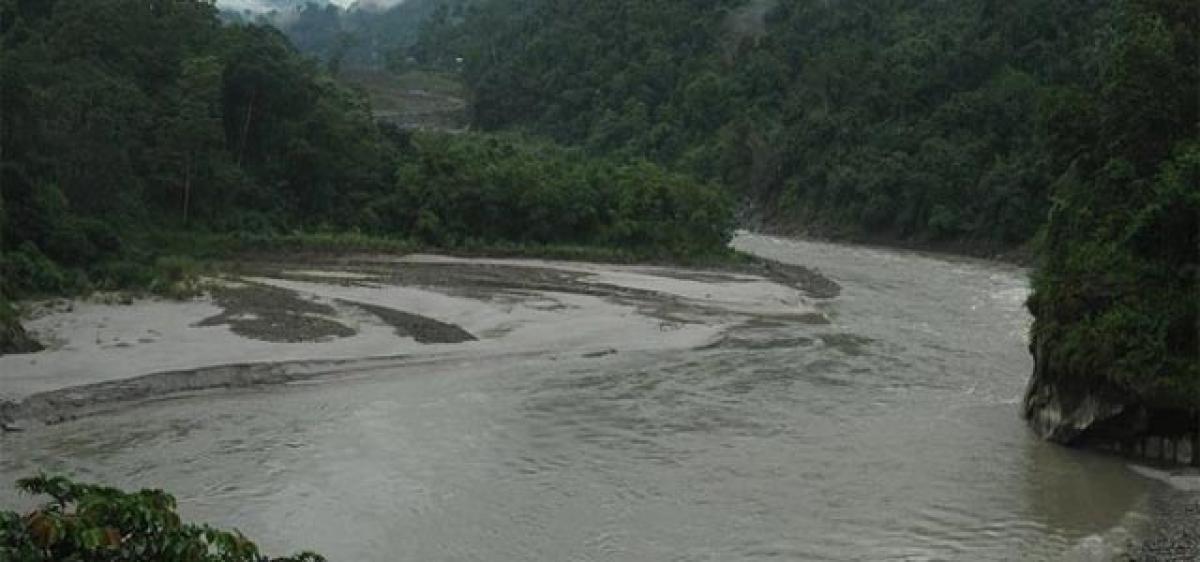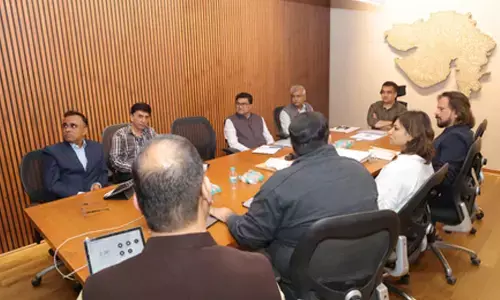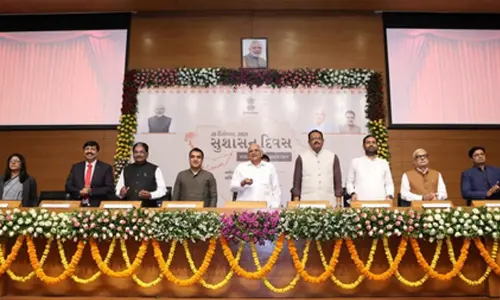Teesta water issue

Prime Minister Narendra Modi has reassured his Bangladesh counterpart Sheikh Hasina of an “early solution” to the emotive Teesta water sharing issue, a pact on which has remained elusive for nearly seven years.
Prime Minister Narendra Modi has reassured his Bangladesh counterpart Sheikh Hasina of an “early solution” to the emotive Teesta water sharing issue, a pact on which has remained elusive for nearly seven years. The two sides inked nearly two dozen pacts in key areas of defence and civil nuclear cooperation after “productive” talks between Modi and Hasina on Saturday.
The Teesta River is a 309-km-long river flowing through the Indian state of Sikkim. It carves out from the verdant Himalayas in temperate and tropical river valleys and forms the border between Sikkim and West Bengal. It flows through the cities of Rangpo, Jalpaiguri and Kalimpong and joins the Jamuna (Brahmaputra) in Bangladesh. It drains an area of 12,540 km2.
In Bangladesh, the river mainly affects the five northern districts of Rangpur Division: Gaibandha, Kurigram, Lalmonirhat, Nilphamari and Rangpur. Its flood plain covers about 14 percent of the total cropped area of Bangladesh and provides direct livelihood opportunities to approximately 7.3 percent of its population.
In 1983, an ad-hoc arrangement was concluded by India and Bangladesh on sharing the Teesta waters. Bangladesh was to get 36 percent, India 39 percent, while the remaining would remain unallocated. In 2011, when the then UPA government was set to conclude the treaty with Bangladesh, West Bengal Chief Minister and Trinamool Party chief Mamata Banerjee opposed it.
Since water is a state subject, the Centre could not do much about it. She holds the ground even during the present NDA regime. Banerjee’s contention is that releasing so much water would affect irrigation systems in five North Bengal districts-Coochbehar, Jalpaiguri, South and North Dinajpur, and Darjeeling.
Modi government is keen to ink the pact to gain some leeway with Bangladesh and wean it away from China, which is offering ambitious projects to Dhaka. Hasina is also keen as it could boost her image as a strong leader. This can come in handy in the 2018 general elections. Article 253 of Constitution empowers Centre to enter into any trans-boundary river water-related treaty with a riparian state, but Centre is desisting as Banerjee has made it an emotive issue.
















